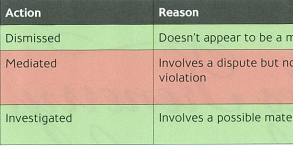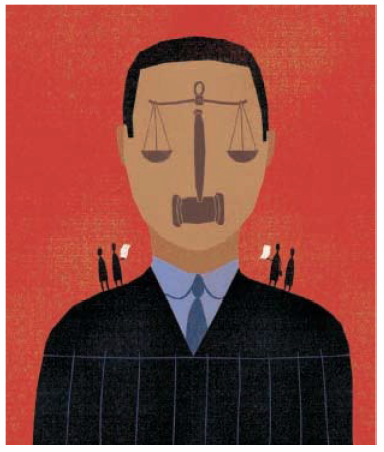BRIAN HAS BEEN EMPLOYED AS AN ACTUARY FOR MANY YEARS. After a long period working at an insurance company, he decided to become an independent consultant. While his private practice thrived, he became concerned that as a sole practitioner, he might be vulnerable to mistakes and incomplete analyses. These problems, though likely unintentional, could result in violations of actuarial standards. … Read More
Types of Discipline
MANY OF YOU HAVE HAD THE OPPORTUNITY to hear presentations by members of the Actuarial Board for Counseling and Discipline (ABCD) at local actuarial clubs or within your company or firm. The members of the ABCD are eager to attend programs that allow them to talk interactively about the role of the ABCD and in which there is time to … Read More
A Look at Transparency
What does transparency in the actuarial disciplinary process mean to you? This concept has been widely discussed in the past couple of years in connection with a proposal of the Council of U.S. Presidents (CUSP) to change the discipline process. Most people agree that transparency is desirable. But the devil is in the details, and those details all have potential … Read More
Are You an Expert?
WHAT ARE YOUR RESPONSIBILITIES for complying with the Code of Professional Conduct when you offer expert testimony about another actuary’s work? Several precepts may apply when an actuary provides expert testimony particularly Precept 13, but also Precept 1, Precept 3, Precept 8, and Precept 9. There are also Actuarial Standards of Practice (ASOP) that may apply, including ASOP No. … Read More
International Compliance
BEING AN ACTUARY IN A GLOBAL ECONOMY requires a lot of diligence. And that diligence begins with the recognition that even if your passport has expired and the only foreign language you speak is pig Latin, you still are working in a global economy. As a U.S. actuary practicing in 2011, chances are good that at some point in your … Read More
Question Time
In a recent interview, James Gutterman, who joined the Actuarial Board for Counseling and Discipline (ABCD) in 2010, discussed his first-year impressions. As an actuary who has worked both as a regulator and on the corporate side, you bring a particularly ecumenical point of view to the ABCD. How do you think this helps you in your work on the … Read More
Non-actuarial Services under the Code
THERE ARE NUMEROUS ACTUARIAL STANDARDS OF PRACTICE (ASOPs) containing what seems to be excruciating detail governing the performance of actuarial services under the Code of Professional Conduct. So much detail, in fact, that actuaries not only need to review the particular governing ASOP when beginning a new type of assignment but also several times a year need to revisit the … Read More
Comments on Changing the Disciplinary Process
AT THE END OF OUR ARTICLE detailing proposals under consideration by the Council of U.S. Presidents (CUSP) to reform the disciplinary process (“Your Comments, Please: Changing the Disciplinary Process,” May/June 2010 Contingencies), Roger Hayne and I invited readers to respond. A dozen Contingencies readers took us up on our offer, sending thoughtful, often detailed replies. You were asked to consider … Read More
Materiality
When the Actuarial Board for Counseling and Discipline (ABCD) investigates a complaint, it makes a determination whether or not a material violation of the Code of Conduct has occurred. If no material violation is found, the complaint is dismissed. If the ABCD finds that there is a material violation, the actuary who is the subject of the complaint may be … Read More
Are You a Rule Follower?
ARE YOU A RULE FOLLOWER OR A RULE BREAKER? If you assume that rules are generally reasonable, you’re probably happy to follow them. I believe that actuaries are generally rule followers (which is a good thing) but that we should think harder about the reasonableness of the rules we follow, especially in a world where others are rule breakers. We … Read More







